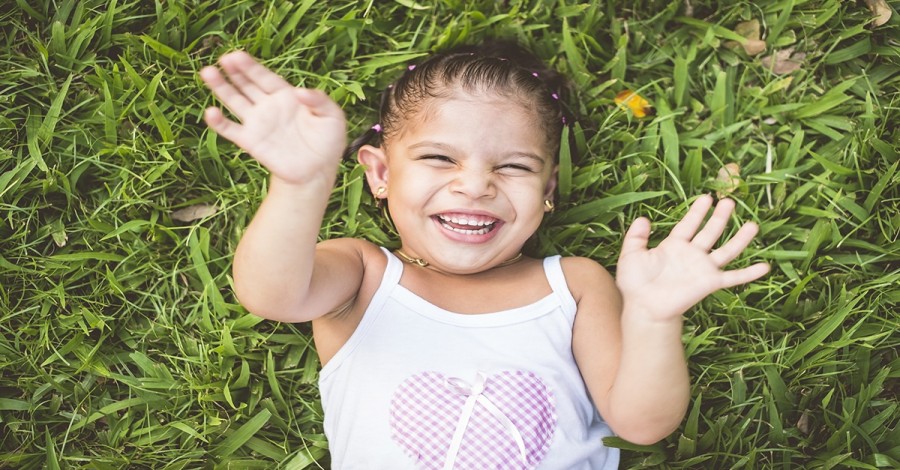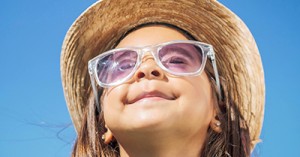On Thursday 19 May Educators, Teachers and Children have the opportunity to try learning outside the classroom as we celebrate Outdoor Classroom Day. Outdoor Classroom Day is a global campaign to celebrate and inspire outdoor learning and play. On the day, thousands of schools around the world take lessons outdoors and prioritise playtime.
For those who regularly take children outdoors already it's a celebration of what you're already doing and acts as a catalyst for more outdoor time every day.
What is Outdoor Classroom Day
In 2012 a handful of schools in London celebrated outdoor learning as part of a new campaign founded by Anna Portch, Empty Classroom Day. By 2015, over 600 schools in 15 countries were involved. In 2016, Project Dirt, one of the founding organisations, partnered with Unilever’s Dirt is Good team to take the movement globally. Following consultation with school leaders, play experts and NGOs around the world, the global campaign became Outdoor Classroom Day. Later that year, the campaigns were brought together under one name and the truly global Outdoor Classroom Day movement was born.
Outdoor Classroom Day is an effort to make the child have quality time in the outdoor environment and surroundings, enjoying and learning. In this program, teachers take the children out of the classroom amidst nature and treat the outdoor environment as the classroom while helping the children in learning and enjoy. The team of Outdoor Classroom Day campaigns for allowing children more time in outdoor activities and learning, throughout the year.
Getting Involved
Children around the world are spending more time indoors and in front of screens. Connecting to nature can restore our sense of well-being. For children, this connection is best made through play – whether outdoors in nature or indoors with natural elements.
Ideas to get involved include:
- Make a nature crown out of leaves, cardboard or twigs.
- Use a cardboard box and paints to make beautiful butterfly wings.
- Turn yourself into your favourite animal with a simple mask.
- Outdoor symphony encourages children to listen to everything going on outside and think about different ways of recreating and recording the sounds.
- Cloud watching is a fun activity for children of all ages and a wonderful way to connect to the outdoors from inside the house.
- Paint a stone animal.
- Create an outdoor scavenger hunt.
- Have children sleep outside.
- Collect fallen leaves for leaf rubbings.
- Create Leaf Monsters
- Collect natural materials for Nature Heads
- Make Nature Bracelets from leaves, twigs, flowers and more!
- Use simple items collected from nature for Nature Weaving
- Get children out on a leaf hunt to collect a variety of different leaves to make Leaf Man
- Create a Nature Mandala from rocks, leaves and flowers
- Use your imagination when creating Nature Faces using natural objects
When incorporating natural materials within the learning environment enables children to be observant and to use all their senses. Children are engaged in decision making and problem-solving opportunities while playing with natural materials. Children become innovators, designers, explorers, artists and collaborators as they build, sort, design, manipulate, arrange and stack natural materials in a variety of different ways.
Benefits Of Outdoor Learning
Current research clearly shows that natural environments and outdoor play are beneficial to children in many ways. Playing outdoors is important for developing capacities for creativity, symbolic play, problem-solving and intellectual development. Outdoor play has clear physical benefits for developing children including helping children to acquire gross motor skills, and eye-hand coordination and helping to prevent obesity. Sensory stimulation derived from interacting with natural environments allows children to learn with all of their senses. These senses include seeing, hearing, touching and smelling. It is well known that physical activity is beneficial for children in many ways. In a recent review of the literature concerning children outdoors, Munoz examines research linking time spent outdoors to increased physical activity, healthy development and overall well-being. Research also shows that children who have trouble concentrating benefit from playing outdoors, as after playing outdoors these children are better able to concentrate on tasks.
We know that outdoor play is a great way to model the joy of physical activity. When children run, jump, climb, throw and kick balls, and ride toys that require balance, they also build gross motor skills and start developing a habit of being active. It also helps a child to mingle with others, play with others to share ideas with others which makes them more social. The greenery surroundings, the nature also helps a child to be stress-free and to be happy. Apart from these the outdoor activities enhanced mental and spiritual health and enhanced spiritual, sensory, and aesthetic awareness. It also increases the ability to assert personal control and sensitivity to one's own well-being.
Belonging, Being and Becoming, the Early Years Learning Framework for Australia examines the practice of early childhood pedagogy and the role that good learning environments play in teaching. ‘Playspaces in natural environments include plants, trees edible gardens, sand, rocks, mud, water and other elements from nature. These spaces invite open-ended interactions, spontaneity, risk-taking, exploration, discovery and connection with nature. They foster an appreciation of the natural environment, develop environmental awareness and provide a platform for ongoing environmental education.
Being outdoors with nature also has a positive effect on children's development. Nature helps a child to be confident, and resilient and also makes them happy. Nature helps a child’s development in many ways such as in increase physical health, also enhance social-emotional and intellectual development. For more information: How Does Nature Affect A Child's Development
Engaging with the outdoors and nature helps even babies to develop fully, realise their physical and intellectual potential as well as bond with the surrounding environment. For more information: Outdoor Play With Babies
Playing or even just spending time outdoors has long been recognized as crucial to positive learning and life outcomes in children. Outdoor spaces thus hold great significance in early education and care learning settings. For more information: Creating Outdoor Spaces For Children In Early Learning Services
If you would like to get involved, sign up for your service here: Outdoor Classroom Day and join millions of children around the world that take part in learning and playing outdoors.
References:
About Outdoor Classroom Day Australia
Get Involved Outdoor Classroom Day Australia
Natural Environments, Department f Education and Training, March 2010







 The Australian Government is rolling out unannounced spot checks across Early Childhood Education and Care (ECEC) services nationwide. This follows a successful pilot in October–November
The Australian Government is rolling out unannounced spot checks across Early Childhood Education and Care (ECEC) services nationwide. This follows a successful pilot in October–November ***WARNING: DISTRESSING CONTENT*** Victorian detectives have laid 83 additional charges against former Melbourne childcare worker Joshua Dale Brown, expanding the total number of alleged offences
***WARNING: DISTRESSING CONTENT*** Victorian detectives have laid 83 additional charges against former Melbourne childcare worker Joshua Dale Brown, expanding the total number of alleged offences In April 2025, the Fair Work Commission (FWC) issued a provisional decision recommending staged award increases to address the undervaluation of early childhood educators; however,
In April 2025, the Fair Work Commission (FWC) issued a provisional decision recommending staged award increases to address the undervaluation of early childhood educators; however, Regulatory authorities across Australia have identified staffing as a priority area, with a strong focus on ensuring educators hold valid, authentic qualifications. Unfortunately, fraudulent certificates
Regulatory authorities across Australia have identified staffing as a priority area, with a strong focus on ensuring educators hold valid, authentic qualifications. Unfortunately, fraudulent certificates Recent commentary has highlighted a striking statistic: 90% of new childcare providers in Australia are run for profit. This raises a fundamental question is this
Recent commentary has highlighted a striking statistic: 90% of new childcare providers in Australia are run for profit. This raises a fundamental question is this